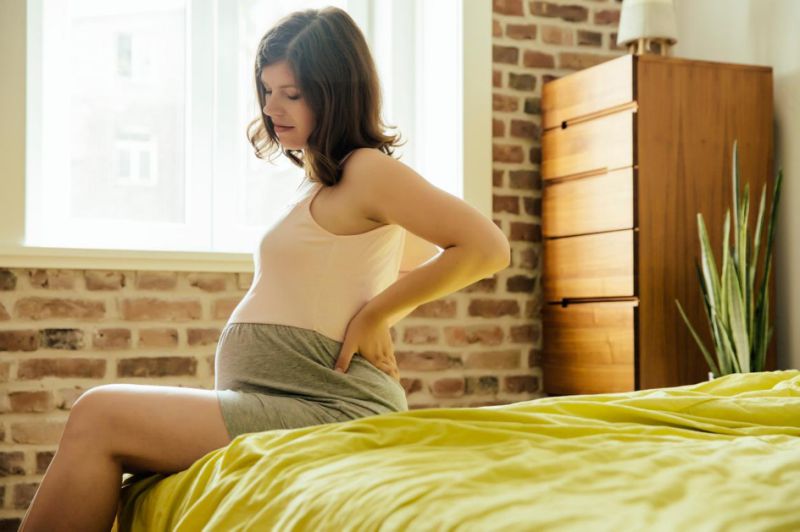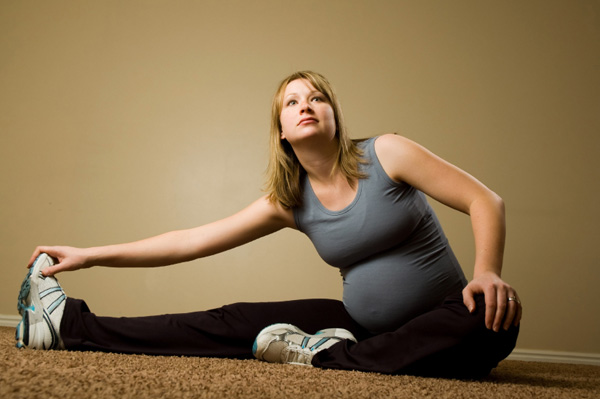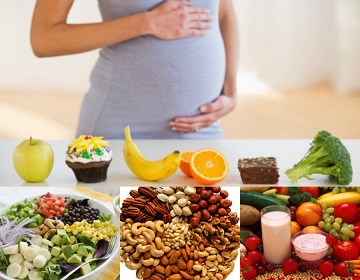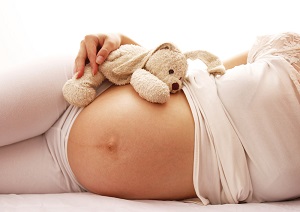Many women who have looked down at a positive pregnancy test will tell you it's a life changing, heart pounding moment. Some women might also find it frightening or upsetting. So it’s not very surprising if these women suddenly blurt out “I hate being pregnant!” Why the drama? Blame rising hormone levels. There are certain women who are more sensitive to those shifting hormones than others.
I Hate Being Pregnant, Is That a Normal Feeling?

It's normal to have mood swings during pregnancy. This is because of the hormonal changes, and the broad range of feelings you may have about becoming a parent at any given time during the pregnancy. Pregnant women respond differently to these changes. Some expectant mothers experience heightened emotions, both good and bad, while others feel more anxious and/or depressed.
Pregnancy can be an overwhelming and stressful time. You might be thrilled at the thought of having a new baby one minute, and then just as quickly begin questioning what you've gotten yourself into, and you're definitely not alone. Consider these testimonials from other mothers:
"I am pregnant with my first child and I kind of feel the same at 21 weeks. Most of my symptoms went away, but the touching and attention from others upset me. My hormones are off the chart, and I cry about everything or I'm angry about everything. I am a really good person, but being pregnant makes me hard to get along with, I hate it."
"I'm a FTM, and I have occasional days when I feel my belly in the morning and notice little flutters from my son's movements, and I am thrilled. However, 99% of the time I feel ugly and fat. I hate how much weight I’ve gained and it feels like it is not just in my belly, but EVERYWHERE!"
"I don’t hate being pregnant, but I definitely don’t love it either. My husband and I were discussing this, we were laughing and joking that we wanted to meet these women who love pregnancy so much. Between all the women in our circle of friends and family, none of us have 'loved' it."
Why I Hate Being Pregnant?
1. Hormonal Changes
If you are having fits of anger, dramatic emotional outbursts, or crying episodes, you can blame it on hormones. Women's estrogen and progesterone levels are dramatically changing during pregnancy, as are other hormones. These hormones begin to level out somewhat during the second trimester. Unfortunately, the extreme mood swings could return again near the end of the third trimester, and it’s not just hormones.
2. Psychological Factors
Expectant mothers who suddenly say "I hate being pregnant," might be able to attribute this general misery to psychological factors as well. They often have thoughts that worry them floating around in their heads during pregnancy, and all can play vital roles in the way it affects their happiness. They may be worried about whether they'll be a good mother, whether the baby will be healthy, and how the cost of adding a new baby to the household will affect the family's finances. Some may worry about how their relationship with their partner will be affected, and whether they'll still be attractive after the baby is born.
3. Physical Symptoms
Finally, the physical symptoms of pregnancy, such as frequent urination, heartburn, and fatigue, can also be burdensome. It's not uncommon for pregnant women to feel like they've lost control over their life and body during this time. All these concerns might take the emotions on a wild roller-coaster ride.
How You Can Cope with the Feeling
1. Do Not Feel Guilty for the Way You're Feeling
Many women who admit "I hate being pregnant" also say it makes them feel unappreciative or ungrateful to even being a mother. They often keep these negative feelings to themselves and feel guilty about it. However, being a good mother and hating pregnancy are not even remotely connected.
Learn to accept the things you cannot control. By simply accepting and embracing your uncontrollable emotions, you’ll spare yourself the exhaustion and trauma of trying to fight them off.
2.  Try an Exercise Routine
Try an Exercise Routine
A brisk walk or a few laps in a pool encourage the body's natural painkiller endorphin to be released by the brain in response to the stress. It may keep you in a happier state of mind. Never mind the effects it has on helping to keep your weight in check.
3. Surround Yourself with Others
Since isolation contributes to depression, the best thing you can do is to surround yourself with family and friends for support. Just having someone you trust to talk with can help prevent the negative thoughts that tend to bring you down. When the family is away, invite some friends over for a social lunch or dinner.
4. Watch Your Diet
 Fish, nuts, and seeds are important to include in a healthy diet. Eating omega-3 fatty acids lower overall rates of depression and this includes a lower incidence of postpartum depression among new mothers. Consuming protein, such as poultry and dairy products, along with low-glycemic carbs like whole grains and beans can boost the production of serotonin, a neurotransmitter which has a calming effect on the brain. Avoid the alcohol, moderate the caffeine, and if you must have sweets, go for dark chocolate.
Fish, nuts, and seeds are important to include in a healthy diet. Eating omega-3 fatty acids lower overall rates of depression and this includes a lower incidence of postpartum depression among new mothers. Consuming protein, such as poultry and dairy products, along with low-glycemic carbs like whole grains and beans can boost the production of serotonin, a neurotransmitter which has a calming effect on the brain. Avoid the alcohol, moderate the caffeine, and if you must have sweets, go for dark chocolate.
5. Have a Good Cry
Go ahead and have a good cry. When you're pregnant, repressed emotions can ferment, bubble, and become toxic when they're not released. If you happen to have an outburst in public, just shrug to the people staring at you and offer this perfectly acceptable explanation, "I'm pregnant."
6. Get Plenty of Rest

Fatigue can intensify the normal pregnancy mood swings, so make sure you're getting enough rest.
When to Worry
Knowing when you're just dealing with normal pregnancy emotions while saying "I hate being pregnant", and when it may be something more serious can be tricky, since many common pregnancy symptoms and depression symptoms overlap. So watch out for the following warning signs that can mean you're crossing the line and should talk to your physician.
- Your mood for the most part down, you're feeling gloomy several days in a row, and you have chronic feelings of hopelessness.
- Your self-esteem is falling off, you have feelings of guilt, and you often talk negatively about yourself. You are often saying or thinking you are going to be a terrible mother, or that your partner will no longer be attracted to you after the baby arrives.
- You have continuing problems falling asleep, have difficulty falling back to sleep after waking, and often wake up very early in the morning.
- You're always exhausted, no matter how much rest you get.
- You don't have much joy in life anymore, and are not looking forward to baby's birth.
- You don't really have much of an appetite in general anymore, or you’ve lost interest in food altogether.
